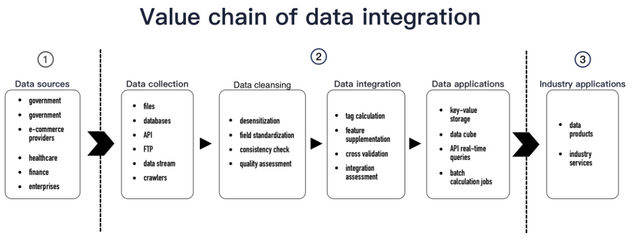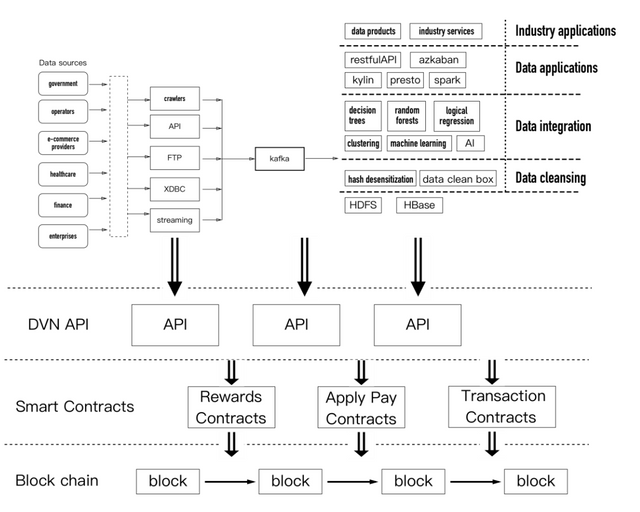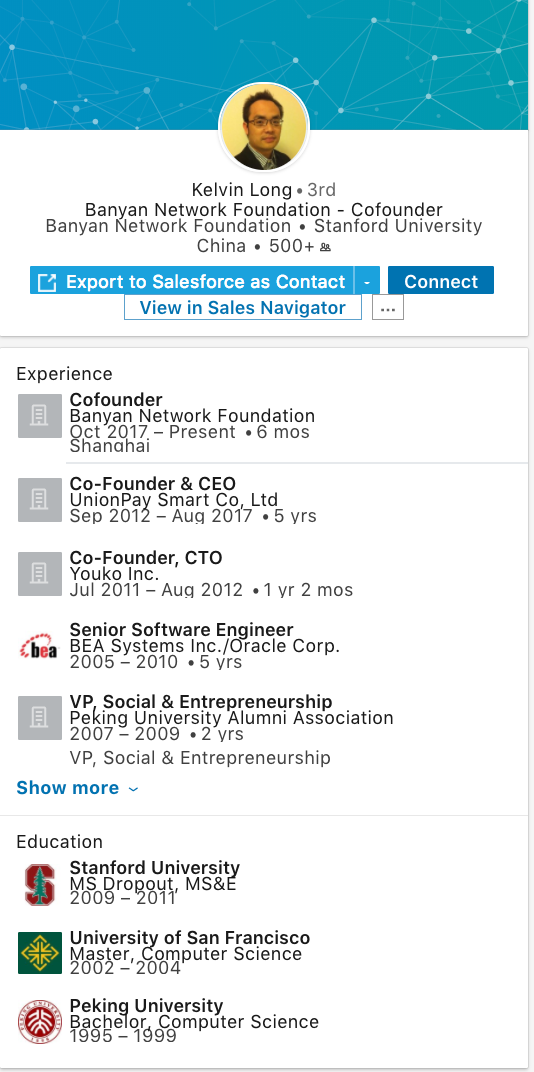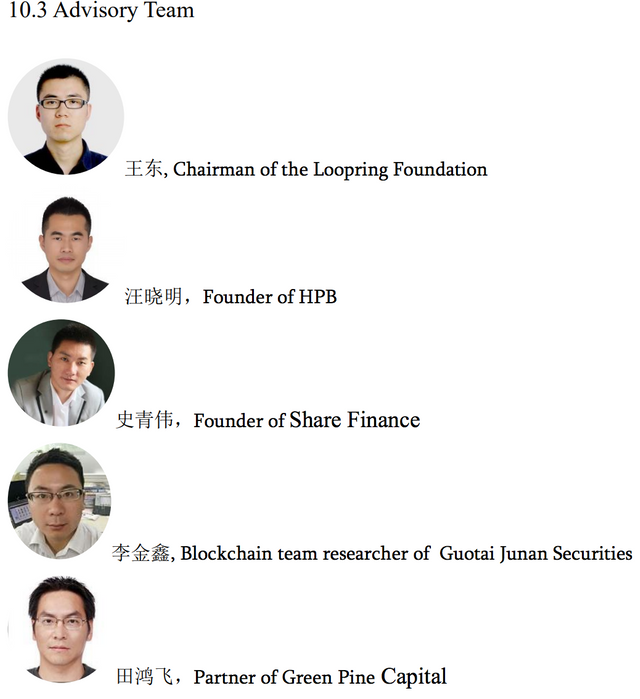Banyan Network: Should you invest?
Data is the new oil rush. Tap into a vein of a database and gushing out is reams of information. Truth is companies are rushing to build the infrastructure to capture that data. Cars have moved from a series of coordinated microcontrollers to a unified set of sensors and sophisticated compute power. Watches have shifted from digital to smart. Data comes out in its raw form much like oil. In that stage it's literally crude and not yet fuel for the future economy.
Turning data into insight. That's the trick. Banyan Network calls itself a data value network (DVN). We know what data is. Value is in the eye of the beholder but let's assume we know what that is too. A network is far more nuanced.
an association of individuals having a common interest, formed to provide mutual assistance, helpful information, or the like.~Dictionary.com
We've collected more data in the last few two years than in the last 5,000 years. Data storage needs to keep up. Crunching all of that data needs to keep up. Training people and algorithms to be able to mine, clean, and interpret that data also needs to keep up.
Enter Banyan Network
The team at Banyan Network (BBN) appears promising on paper. They have data science backgrounds. As a data analyst myself, I can certainly appreciate the multiple steps involved in making data driven decisions:
- Collect data
- Cleanse (normalize) data
- Enrich (add attributes) data
- Apply data models to said data (joining disparate data sources, apply arithmetic or calculus or whatever kind of math you want)
- Analyze and interpret results
- Weigh pros and cons of actions based on data
- Decide
- Act
Under the scenarios of big data applications with increasing focus on transparency and security, the blockchain technology allows multiple nodes to jointly participate in data computation and recording and to cross-check their validity, thereby making the data more trustworthy and more valuable.All the key buzzwords are there. Transparency. Security. Participation. Validity.
Why I like the idea of a data marketplace
Personally, I'd love to see my data in my pocket. Owned by me. An example of a product that irks me is my FICO score. The days of credit bureau agencies turning my financial history into a product/service they can package and sell to banks - who then, in turn use my credit history as an input into whether I am entitled to a certain grade of loan. I would like to be the captain of my own data. I would like to be a data island. I would like to be one of those "multiple nodes to jointly participate" in the Data Value Network.
My car could become a data island complete with my speed, fuel efficiency, tire pressure, and fuel gauge data. My computer browser (switched over to Brave Browser) and my browsing history would be owned by me and becomes yet another data island. I get to choose when I share my data to be mined. Imagine becoming one of the data sources stored on BBN's blockchain and provisioned at my request to a company needing to acquire data.
Nice try with the double helix metaphor
BBN attempts to use the double helix structure of DNA to explain that it serves two streams, the "data stream" and the "value stream". The "data stream" takes on the unenviable tasks of data aggregation, connection, access, and coupling. The "value stream" takes on the more exciting portions of data analysis, namely value mining, assessment, recording, and distribution. In between the stream streams is the "cross-section", which is essentially the market clearing mechanism to connect data providers (supply) and data purchases (demand).
Data process
source: BBN whitepaper
At each step BBN is building out tools at each layer. Databases for storage, ETL tools for extract-transform-load, data analytics capabilities, and querying languages have existed for decades. But BBN can stand out because it can offer a marketplace for data providers and buyers (DEX), participation incentives (tokens), and security via its distributed ledger (see Equifax, Sony, Target hacks).
Smart contracts and governance
BBN does a great job of explaining their smart contracts and governance in their white paper. Rather than wax philosophical I'll list out the staking deposit and contracts out quickly:
Deposit (staking mechanism): payment is required for an application of data governance to obtain a certain number of rights for data processing and optimization.
Introducing Rewards Contract (IRC): responsible for calculating and confirming the Reward for the introduction of data from data sources
Computing Rewards Contract (CRC): calculates and confirms reward for participating in data governance
Apply Pay Contract (APC): calculates and confirms payment for data usage.
Partnerships that look good on paper
I say on paper because that's all I have gathered so far. Cryptocurrency partnerships are all the rage. But what does a partnership really mean and what real value does announcing a partnership bring to the table? The proof will be in the pudding. The value will come when meaningful integration between the projects come to fruition. Backed by Neo and HPB as angel investors, BBN certainly has the opportunity to work hand in hand with up-and-running teams.
The data value network adopts advanced data matching and correction algorithms to implement and contribute to reward computation mechanisms, partnering with resourceful mainstream commercial data providers, basing the initial values on resources of branding for major clients, and providing convenient channels for enterprise and individual data sources joining the “data value network ecosystem.”
Team
David Zhou - CEO: appears to be a serial entrepreneur. He started with a ePowerHouse - a solution to connect would be entrepreneurs with the resources they need. From August 2014 to October 2015 he started doing business in China working in and around in a financial capacity with Baofeng going public (a radio commpany) and as an investor with a venture capital in the Virtual Reality industry. I couldn't find much on the internet for those two experiences except what's on his LinkedIn profile. Prior to BBN he founded a VR content business for the travel industry with a DAU (daily active users of 50-100K). For reference, Snapchat had a DAU of 187 million users in Q4 2017.
Li Zhuoying (李卓颖) - Scientific Advisor: I honestly couldn't find much on him online. I need to reach out to them.
Kelvin Long - Head of China: I took a snapshot of Kelvin's background (image below). Right off the bat, please do not post Stanford everywhere if you did not complete your program. Now with that said, plenty of high quality professionals have come out of university programs they did not give complete so that's my benefit of the doubt counter. He has experience at plenty of high quality firms such as Oracle and IBM where he spent one year each in various engineering capacities. He later spent 5 years at BEA Systems which coincidentally was reacquired and he was back at his old firm Oracle Corp. once more. Between 2012 - 2017 he was at Union Pay Smart where he lists himself as CEO. Union Pay Smart is not Union Pay, but rather a part of Union Pay. It is a subsidiary. He did serve as co-founder and CTO of Union Pay Smart, a provider big data applications within Union Pay. That's a big plus.
Their core team appears to boast the skillsets needed to execute such an ambitious project from professionals coming from Union Pay and Oracle. Seems to be a group of people who worked at these organizations in the past and became involved in blockchain. Personally I'd love to start getting a sense for their technical accomplishments in the blockchain and data analytics space.
Assessment on the team: I always start with answering one question, if I could take the best team on the planet and line them up against this group of management - would I lose? The most critical portion of their technology stack in my opinion is their data collection and enrichment suite, and the blockchain itself - which is not built by them (Ethereum). As for developing big data applications they'll need to rely on the strengths of Kelvin and Li to guide their team to build the proper infrastructure. On paper the team looks impressive in comparison to other crypto projects I've looked at, but I think they run into serious issues going up against firms with vested interests in preserving their oceans of data such as Google, Oracle, SAP, and Amazon, centralized or not. T
Advisors
This is the section where most reviews I've seen online get excited. Familiar crypto firms such as HPB and Loopring are mentioned. Everyone's excited! I take a skeptical view when it comes to two things in the crypto space: announcements and the advisory team. What advice are these advisors providing? I'd like to get answers and will reach out. Hopefully I hear back and can edit this article with a more articulate perspective. As a crypto enthusiast I'm excited to see familiar names. But I have to remember that familiarity shouldn't breed confidence. I'm not on the ground in China to understand how tightly knit each of these projects are but Loopring and HPB are often mentioned in the NEO ecosystem. I honestly need to know more.
Criticisms - or rather my key questions
Is BBN a glorified API?I don't think so. They're building out a generic smart contract between Ethereum's blockchain and their own API. On top of the API they will provide a set of tools for data aggregation and cleansing. I am a little concerned there are already tons of providers in the data analytics (aggregation, storage, compute) space. For example, I use Google BigQuery for all of my data analytics needs and I spend less than $0.25 a month for the data sets I manage. The price I pay is reasonable but I do understand the risks of having my data sit on their server racks - therefore I trust Google to store, secure, and maintain my data. I opted to buy rather than build with the projects I work on.
Is BBN taking too much verticality in providing services starting from data collecting down to the blockchain?Should BBN disaggregate the value chain here and focus on a portion of their total solution? Leave data collection/aggregation to the data providers. Keep the API. Use another virtual machine to run their smart contracts such as Ethereum Virtual Machine (EVM). Leverage open source blockchains such as HyperLedger. BBN notes they use Ethereum's blockchain but considers the blockchain to be modular (swap out for Neo, HPB, or any other blockchain).
What prevents major players in the data space from stepping in with their own marketplace solutions? i.e. Google Cloud, Amazon Web Services, Microsoft Azure.They have the infrastructure and plenty of revenue to split with data providers.I always say innovate or die. It's one thing for large companies to defend their castle by extending the moat but as often quoted by Andy Grove (Intel's famous former CEO), "only the paranoid survive". Innovative companies would rather disrupt themselves than have someone else do it for them. There's no stopping these companies from participating in the blockchain and decentralized revolution. BBN would do well to provide a compelling set of incentives to stay in their ecosystem.
Drivers of value
If BBN can deliver on a number of its propositions then it stands a chance of doing well.
First, develop a stack that tightly integrates their entire offering from data analytic tools to the API that sends/receives data to its token system / governance and finally to the choice of blockchain. The blockchain will need to be able to privatize the data so as to comply with several legislation such as GDPR. It will need to be fast to satisfy enterprise IT departments latency requirements, if enterprises are indeed their target.
Second, their marketplace between suppliers and purchasers of data will need to be compelling for each side to willingly come to the table. As trustless technologies evolve over the coming years, the idea of bringing your personal or company's data sitting on a distributed ledger should become less and less foreign. I've been hearing about the journey to move from on-premises solutions to cloud solutions for storage and compute for the last several years. At best, the move to enterprise grade blockchain will take a similar length of time if it serves as a substitute to centralized cloud storage. If it meant to be a complementary product then I do see it making initial headway.
Third, take on niches. Rather than building out an "we can do everything solution", BBN would do well to take on a foothold in the data space. With its collective team experience at Oracle, Union Pay it might do well to start tackling a sliver of the financial space. Payments? Remittances? From there it could circle out widely concentrically until it captures larger and larger pie slices.
I hope you enjoyed reading this post. It was a tough project to review with so many gaps in my research. At this time I have a neutral outlook on this project. They have on paper a capable team. They have the familiar faces in their partnership network. They are tackling giants. I consider this highly speculative. Trade with caution.
Thanks for getting this far in reading my post. Follow me on Twitter if you'd like to stay up to date with my thoughts.




Coins mentioned in post: